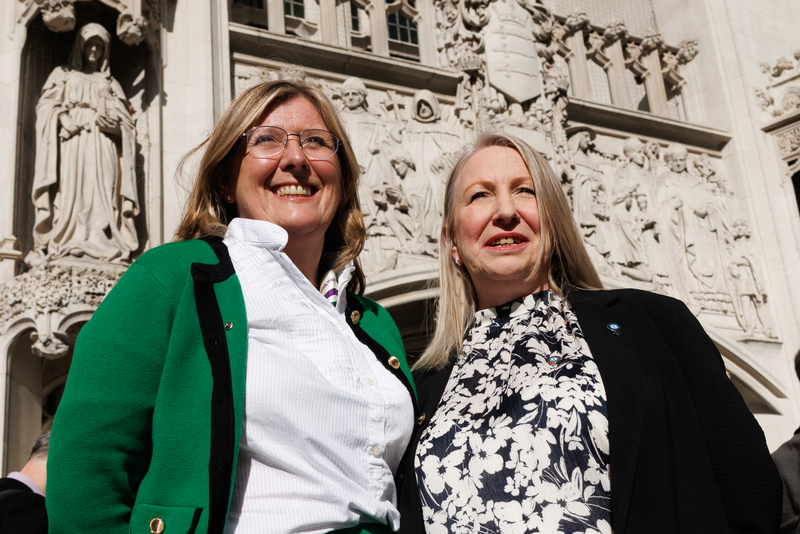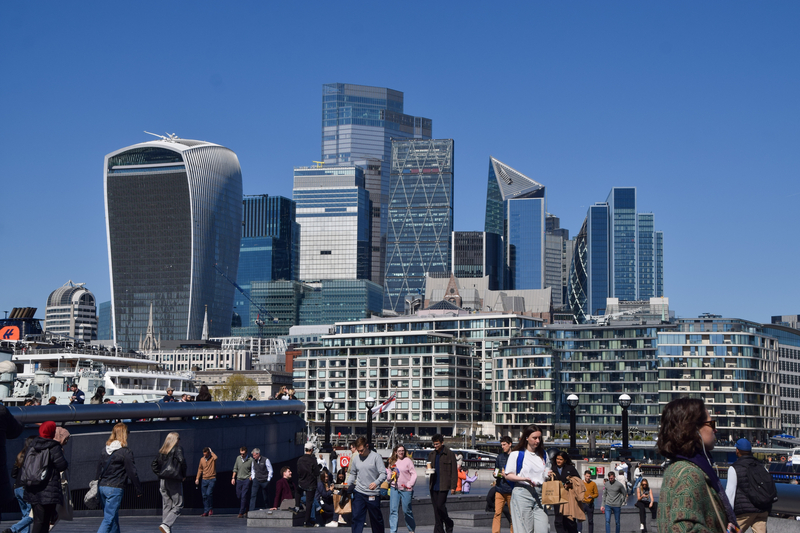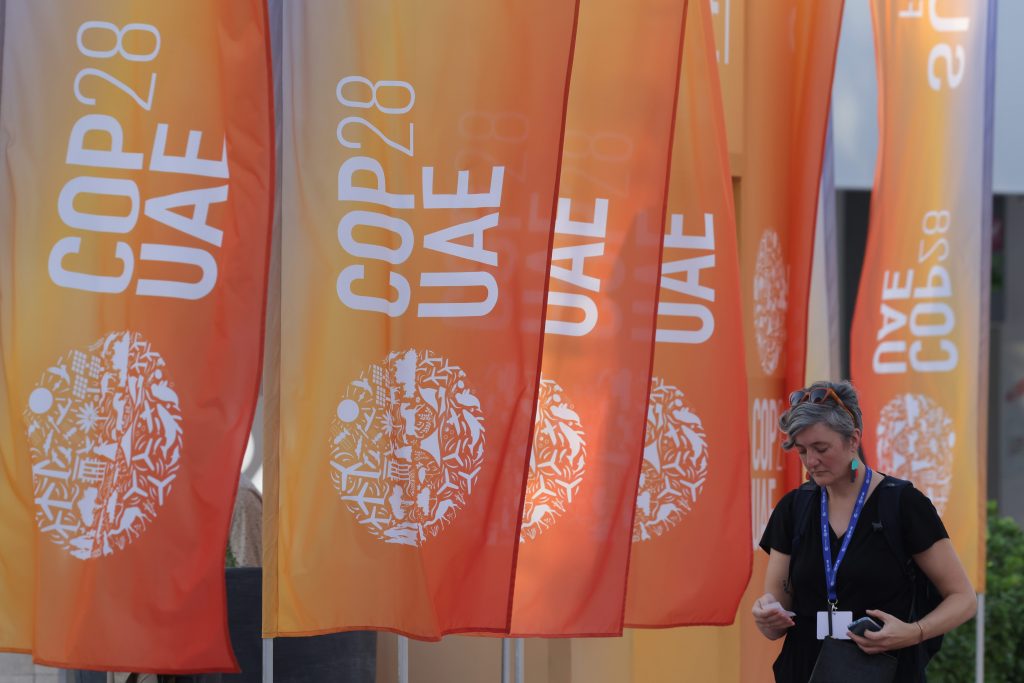More than 190 governments gathered in Dubai last Thursday for the United Nations’ annual two-week summit, called COP 28, where nations attempt to brainstorm and develop plans to tackle the worldwide problem of climate change.
This year, pledges were made from coalitions of nations and from the private sector, and formal diplomatic talks brought about some compromise in the final hours.
COP28 was organized by the United Nations Framework Convention on Climate Change (UNFCC) and the COP28 United Arab Emirates Presidency to take stock of the slow progress in meeting the climate goals set by the Paris Agreement.
Big oil commitments
The Big Oil CEOs attended the event, and when COP28 host Sultan Ahmed al-Jabar presented the Oil & Gas Decarbonization Charter, dozens of energy titans signed up. The signatories are responsible for 40% of global oil production and include state-owned giants such as Saudi Aramco, plus corporate giants Shell and Exxon.
The Charter formalizes their industry agreement to align around net zero by or before 2050, zero-out methane emissions, eliminate routine flaring by 2030, and continue working toward industry best practices in emission reduction.
The charter drew criticism from climate groups that point out this is a voluntary pledge only, and that Instead of committing to reduce burning fossil fuels – the main cause of climate chaos – the companies offer to reduce “operational emissions” that result before oil and gas are burned, ignoring 80-90% of their emissions.
New moves by nations, big companies
The UAE is pledging $30 billion for a climate fund, working with BlackRock, TPG and Brookfield as launch partners. UAE officials dubbed the fund “the world’s largest private investment vehicle for climate change”.
A $25 billion “acceleration” fund will steer capital toward developed and emerging markets, and a $5 billion “transformation” fund will provide risk mitigation finance to areas including least-developed nations and small island states.
Both the energy and climate tech funds and its partners are “actively exploring” opportunities like a 5GW+ slate of African wind and solar projects.
Tripling renewable generation
World leaders at the UN Climate Change Conference in Dubai agreed to triple global renewable generation capacity by 2030.
A total of 116 countries signed the Global Renewable Pledge and Energy Efficiency Pledge, agreeing to triple renewable energy generation capacity to at least 11 TW and double global energy efficiency improvement rates from around 2% per year now to more than 4% per year by 2030.
The targets had been flagged by the COP28 president in the run-up to this climate summit, but reaching an agreement at the meeting was considered a major milestone for the talks this year.
Nuclear energy
The advanced nuclear reactor company TerraPower LLC, founded by Bill Gates, and the UAE-owned nuclear company ENEC said they have agreed to study the potential development of advanced reactors in the UAE and abroad.
The memorandum of understanding comes amid a push by the UAE to expand its nuclear energy capacity, and it came alongside a pledge by over 20 nations at the COP28 climate conference in Dubai to triple nuclear deployment this decade to fight climate change.
The UAE currently has one traditional nuclear power plant, near Abu Dhabi, which began producing electricity in 2020. TerraPower has a demonstration project underway for its advanced Natrium reactor in the US state of Wyoming that hopes to come online in 2030.
As for those 20+ countries – they agreed to launch the Declaration to Triple Nuclear Energy.
The Declaration recognizes the key role of nuclear energy in achieving global net-zero greenhouse gas emissions by 2050 and keeping the 1.5-degree goal within reach.
Core elements of the declaration include working together to advance a goal of tripling nuclear energy capacity globally by 2050 and inviting shareholders of international financial institutions to encourage the inclusion of nuclear energy in energy lending policies. The endorsing countries include those from four continents, including the US, UK, Canada, Japan, France, Republic of Korea, UAE and Ghana.
Tracking tool for GHGs
A global coalition co-founded by Al Gore, the former US vice president, released a database to track global greenhouse gas emissions that can provide data down to the individual polluter. Gore spoke about the tool at COP28.
Some of the world’s biggest companies are planning to use this data to decarbonize their supply chains, he says.
The database is called Climate TRACE, and it uses machine learning, satellites and other technology to detect and track greenhouse gas emissions. That information is then bundled up into a public inventory.
The database covers more than 350 million sources of greenhouse gas pollution, such as individual power plants, steel mills and mining operations. The specificity of its data allows companies to build a low-emissions supply chain rather than relying on suppliers’ self-reported emissions data, Gore explained.
“We are here at this COP in particular because this is the year of the Global Stocktake,” Gore said, referring to the process to gauge countries’ progress toward meeting the Paris Agreement goals. “Climate TRACE is really the only independent comprehensive source of accurate data on which a stocktake can be made.”
AI tools to measure emissions reductions
United Nations leaders and Microsoft announced at COP28 a partnership that will enable the UNFCCC to create a new AI-powered platform and global climate data hub to measure and analyze global progress in reducing emissions. This includes tracking transportation, agriculture, industrial processes, and other sources of carbon emissions.
These advanced tools will dramatically simplify the process to validate and analyze climate data submitted by the 196 Parties to the Paris Agreement, Microsoft said in a press release.
“The world must move faster to reduce carbon emissions. Simply put, you can’t fix what you can’t measure, and these new AI and data tools will allow nations to measure emissions far better than they can today,” said Brad Smith, vice chair and president of Microsoft.












